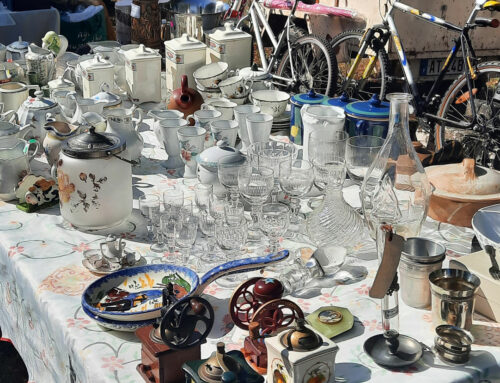I was just in Peoria, IL, right after my niece’s extraordinary wedding because my dad had another major stroke in mid-September. He’s currently in a fantastic rehab/skilled nursing facility and doing a lot of physical, occupational, and speech therapy. I don’t know if he will ever leave, but at least they’re doing everything they can for him.
Anyone who has moved their loved one into a nursing home or similar has had the experience of answering approximately 12,000 questions about their care. When they are incapacitated, the hardest inquiries are when choosing end-of-life options. Much like planning a funeral or writing an obituary, these conversations are unbelievably awkward and challenging. They are also essential.
In a perfect world, we all have ongoing conversations about healthcare preferences and options with our parents and children. But this isn’t a perfect world, and the rest of us run away in fright due to how fraught this topic is. No one wants to consider a scenario where it’s being decided to continue their life or address their death. Nor does anyone want the responsibility of making those same decisions without knowing their loved one’s preferences.
I am begging you to have these conversations. Start by filling out a POLST form. Short for Provider Orders for Life-Sustaining Treatments, a POLST is portable, so it goes with you (much like your prescriptions) wherever you are. Think of it as a medical bracelet that announces to paramedics, etc., that you are diabetic. (POLST bracelets are also available.) Having a POLST in place allows everyone who is treating you to know what you want for life-sustaining treatments. Your medical provider has a copy, as do all your loved ones.
A POLST is part of advanced care planning that allows your personal goals, values, and religious and cultural beliefs to be known and respected if you have a medical emergency. POLST forms are available through the Wyoming Department of Health if you google WyoPOLST and at most medical providers’ offices.
First, you should talk with your primary medical provider, who should write your wishes down in your medical records. Then, you fill out a specific advanced directive and a POLST form. Finally, share this form and your directives with friends and family so they know what you want if you cannot communicate. I can’t emphasize strongly enough what a gift you will be giving to your loved ones and yourself by making these decisions ahead.
And don’t think you’re too young to have these conversations or fill out a POLST, much less have a will, medical and financial power of attorney, and funeral instructions in place. We have no idea when our time is up. As you age, you can change your preferences, your beneficiaries, etc. They’re not carved in stone (an unexpectedly appropriate death pun). But if you think doing nothing avoids the horrendously hard decisions your family will be forced to make on your behalf, think again. I don’t have the stats, but I doubt most people die instantly. When these choices need to be made, will they be informed by your wishes? Only you can make sure that happens.
I am profoundly aware of how hard this is – did I mention my dad just had another major stroke at 83? Past, brief conversations about what he may want for himself at this stage were both vague and undocumented. The pressure on my stepmom, my brother, and me to intuit his wishes is brutal. Do we want him to be resuscitated? Do we want to send him to the hospital? Do we want to give him antibiotics to slow an infection? Do we want to put him on life support? What about hospice?
These are difficult questions on a good day when everyone is healthy. They are devastating questions when your dad is unresponsive in a hospital bed. Many of them might have been answered with a POLST, advanced directives, and a living will. Instead, we had to run everything through the filter of “What would Dad want?” Imagine the horror if we had not agreed on most choices. Many families don’t make it out of a scenario like that intact.
This end-of-life conversation doesn’t have to be grim, just realistic and clear. The joke at our house is that if Mike or I are on life support, don’t worry. Our death will be unexpectedly hastened when one of the boys unplugs us to charge their phone.







Leave A Comment